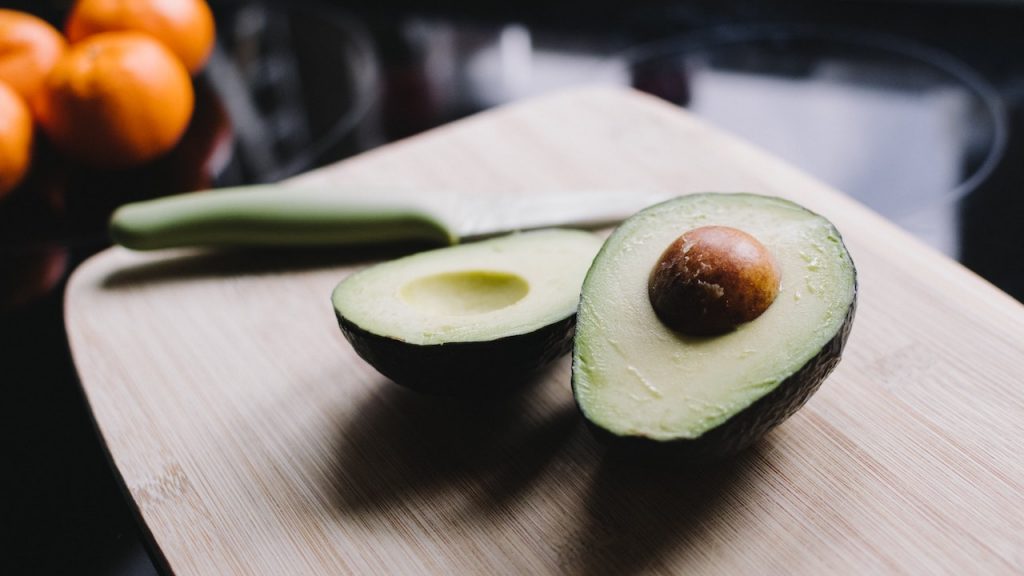Tips For the Conscious Eater On Cooking In the Age of Coronavirus
Staying at home to prevent the spread of COVID-19 has many cracking open their pantry — maybe for the first time. Here are tips for eating smart and staying healthy while at home.

Housebound during coronavirus-related shutdowns, many Michiganders may be donning their chef hats, maybe for the first time.
But the art of whipping together a delectable dinner using ingredients on-hand isn’t easy, and staying healthy and preserving food while doing it is even harder.
Sophie Egan is the author of “How To Be A Conscious Eater.” She says there’s two crises society faces today.
“There’s a lack of food literacy and confidence in the kitchen, and this is understandable.” – Sophie Egan, author

“Above all I think what the virus shows us is how interconnected we are as a global community,” says Egan, “The climate crisis is also an emergency, [even though] its slower moving and may be harder to see.”
But, she says people have an opportunity to meet these challenges: “three times a day.” For Egan, the three biggest things anyone can do to eat consciously are to waste less, eat a plant-rich diet and support soil health through buying organic or regeneratively grown foods.
But first, Egan says home chefs should switch their mindset.
“There’s a lack of food literacy and confidence in the kitchen, and this is understandable,” says Egan. Television and social media can make cooking feel intimidating, but it doesn’t have to be.
Egan talks with WDET’s Annamarie Sysling about some of the important culinary tips laid out in her book and explains how they can be incorporated into life during the Coronavirus pandemic.
Click on the player above to hear Sophie Egan’s guide to cooking at home during the coronavirus pandemic, and read her tips below.
Trusted, accurate, up-to-date
WDET is here to keep you informed on essential information, news and resources related to COVID-19.
This is a stressful, insecure time for many. So it’s more important than ever for you, our listeners and readers, who are able to donate to keep supporting WDET’s mission. Please make a gift today.
Step 1: First-Time Chefs, Sharpen Your Knives
Egan says the secret ingredient to cooking at home are the ones in you already have in your pantry.
And when it comes to using processed foods, “a good rule of thumb is, do you have that ingredient in your pantry?” Egan says, pointing out that when looking at ingredients, it’s important that you recognize the items listed. If it sounds like a non-food substance, you might want to question consuming it.
To simplify things, Egan, a busy mom, says she prefers working with “five ingredients or less during the week.”
Her second piece of advice: “A good knife goes a long way.”
Egan notes that a good knife isn’t the same as an expensive knife. Just make sure you’re working with a sharp utensil. It’ll make a really big difference.
Step 2: Know How to Read a Recipe, Label
Choosing a recipe for a home-cooked meal can present it’s own challenges. Especially when using prepared, processed foods like a jar of store-bought spaghetti sauce, for instance.
Egan points out while fewer ingredients on a packaged food label might seem like the best option, sometimes a long ingredient list is okay too.
For example, salsa or spaghetti sauce contain several ingredients, but many are simply spices that contribute to texture and flavor. The items in the ingredient list to watch out for are the ones you don’t recognize.
“Because ingredients go in descending order by weight, the first ingredient is the most important,” Egan says. For packaged goods, she says “you want it to be a whole, plant-based food you recognize like peanuts or oats.”
For canned food, Egan says to pay special attention to the nutrition facts on the label, especially the saturated fat and sodium.
Step 3: The Freezer Is Your Friend
Our pantries are where we spend time, but Egan says the freezer is an under-utilized, additional storage space.
“Think about our freezers, there’s an abundance of opportunity to make food last longer,” she says.
When shopping, Egan says, frozen organic produce is less expensive and just as nutritious as the fresh option. The same goes for wild-caught seafood.
